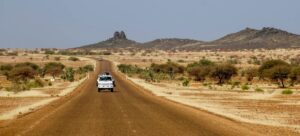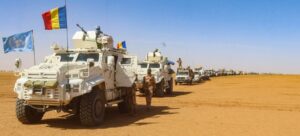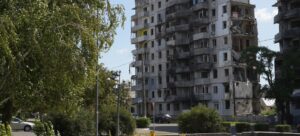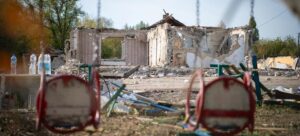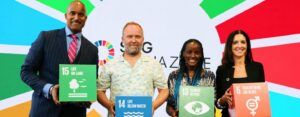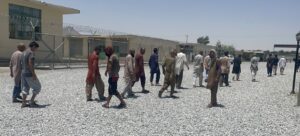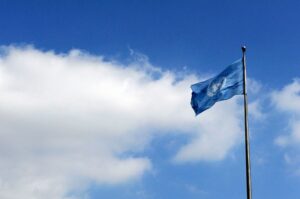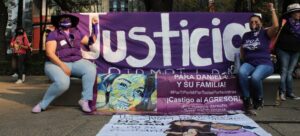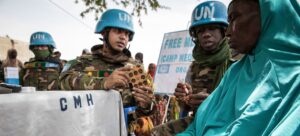The development is the latest step in the accelerated withdrawal process of the Mission, known as MINUSMA, which is due to leave the West African country by the end of the year after a decade in operation.
The 143 vehicles left Kidal on 31 October and travelled nearly 350 kilometres, transporting 848 peacekeepers from Bangladesh, Chad, Egypt, Guinea and Nepal, as well as equipment.
‘A tremendous feat’
The convoy – which was reportedly approximately nine kilometres long – encountered six improvised explosive devices along the way.
Thirty-seven “blue helmets” required medical attention, though all have since been discharged or are in stable condition.
Speaking in New York on Wednesday, UN Spokesperson Stéphane Dujarric said the convoy also had to depart without air support due to a lack of flight clearance from the Malian authorities – a situation that increased the safety risk of the peacekeepers.
“In addition to insecurity, bad weather and poor road conditions caused vehicles to break down, adding to the challenges the convoy faced on its way to Gao,” he told journalists.
“As a result of the delays, they were running low on supplies, and had to be resupplied by air with fuel, water and other items,” he added.
Replying to reporters’ questions at Wednesday’s briefing, Mr. Dujarric said the convoy’s arrival was “a tribute to the amazing work that our peacekeepers do under the most difficult circumstances”.
“It’s a tremendous feat to bring a convoy of some 800 people, nine kilometres long, to relative safety and we’re happy that as far as we know, none of the peacekeepers were seriously injured.”
Departure and liquidation
The departure from Kidal marks the closure of MINUSMA’s eighth base out of a total of 13.
In the coming weeks, the Mission will end its presence in Ansango, located in the Gao region, followed by Mopti, thus completing the second and final phase of the withdrawal plan.
The remaining bases of Gao, Timbuktu and Bamako, where MINUSMA is currently consolidating its presence, will be handed over to the Malian authorities once the so-called liquidation phase, which begins on 1 January, is completed.
Only a small team will remain behind to oversee both the orderly transport of assets belonging to countries that contributed uniformed personnel to the Mission, and appropriate disposal of UN-owned equipment
“These assets will either be repatriated or redeployed with other UN missions, or gifted to the Malian authorities or sold in the market, in accordance with our relevant rules and regulations regarding the closure of peacekeeping missions,” said Mr. Dujarric.
End drawing nigh
MINUSMA was established by the UN Security Council in April 2013 in the wake of a coup in Mali’s capital, Bamako, and an insurgency in the north.
The Mission has supported political processes and carried out a number of security-related tasks. It has often been referred to as among the most dangerous UN peacekeeping missions, with 310 fatalities recorded.
The Council terminated the Mission’s mandate in June following a request by Mali’s military government.
As the drawdown of MINUSMA personnel continues, half of the 13,871 personnel have now departed the country.
Chadian and Guinean peacekeepers who were in the convoy that left Kidal are this week scheduled to depart Gao for their homelands.
Mr. Dujarric reaffirmed the UN’s determination to complete the MINUSMA withdrawal by 31 December, adding “and we are counting on the full support of Mali in that regard.”
